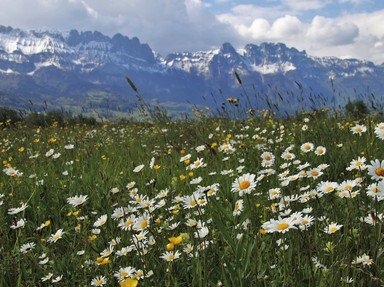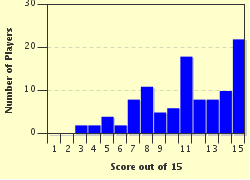Quiz Answer Key and Fun Facts
1. The 1st of May, or May Day, is a holiday in most of the Northern Hemisphere, with its roots in various pagan festivals. But which pagan holiday is NOT associated with May Day?
2. While many May Day celebrations are based in pagan religions, some very different things can be celebrated on the 1st of May. Which of the following is NOT generally observed on May 1st?
3. Many people in the U.S. and Canada sometimes refer to Cinco de Mayo as "Mexican Independence Day". Are they correct?
4. May 8 in France is known as La Fête de la Victoire; it was when a nation occupying France surrendered. The end of which war is celebrated on this day?
5. Most countries honor mothers with a special day of one form or another. In the USA, who founded Mother's Day as celebrated on the second Sunday in May?
6. Yom Ha'atzmaut, or Israeli Independence Day, is celebrated on the 5th day of Iyar, which in the Gregorian calendar falls in April or May. It commemorates the declaration of the State of Israel on May 14, 1948, by the first Prime Minister of Israel. Who was he?
7. International Nurses' Day (May 12) coincides with the birthday of which health reformer and statistician, whose achievements included vastly improving the sanitary conditions of British hospitals in India and making nursing a respectable profession in its own right?
8. Another profession is honored on May 15, El Día del Maestro, in Mexico. Which profession is this?
9. Forty days after Easter falls what Christian holiday associated with the ascent of Jesus Christ into heaven?
10. Another important Christian observance connected with the Twelve Apostles falls in May. Held fifty days after Easter, what it is called?
11. By law, how many spring bank holidays does the UK NORMALLY hold in May?
12. The last Monday before May 25 is the day that Canadians honor a beloved British monarch who happened to be the first sovereign of a confederated (united) Canada. Who would that be?
13. In the USA, the third Saturday in May is Armed Forces Day.
14. In Japan, Golden Week occurs during the last days of April and first days of May. Shôwa Day, the first day of GW, is a day of reflection on the tempestuous years of Emperor Hirohito's reign (1926-89). Which of the following days is NOT a part of Golden Week even though most of East Asia celebrates the occasion?
15. In the U.S.A., Memorial Day, the day to honor the fallen men and women of the military, occurs on the last Monday of May. From which war in U.S. history did Memorial Day arise?
Source: Author
gracious1
This quiz was reviewed by FunTrivia editor
stedman before going online.
Any errors found in FunTrivia content are routinely corrected through our feedback system.

